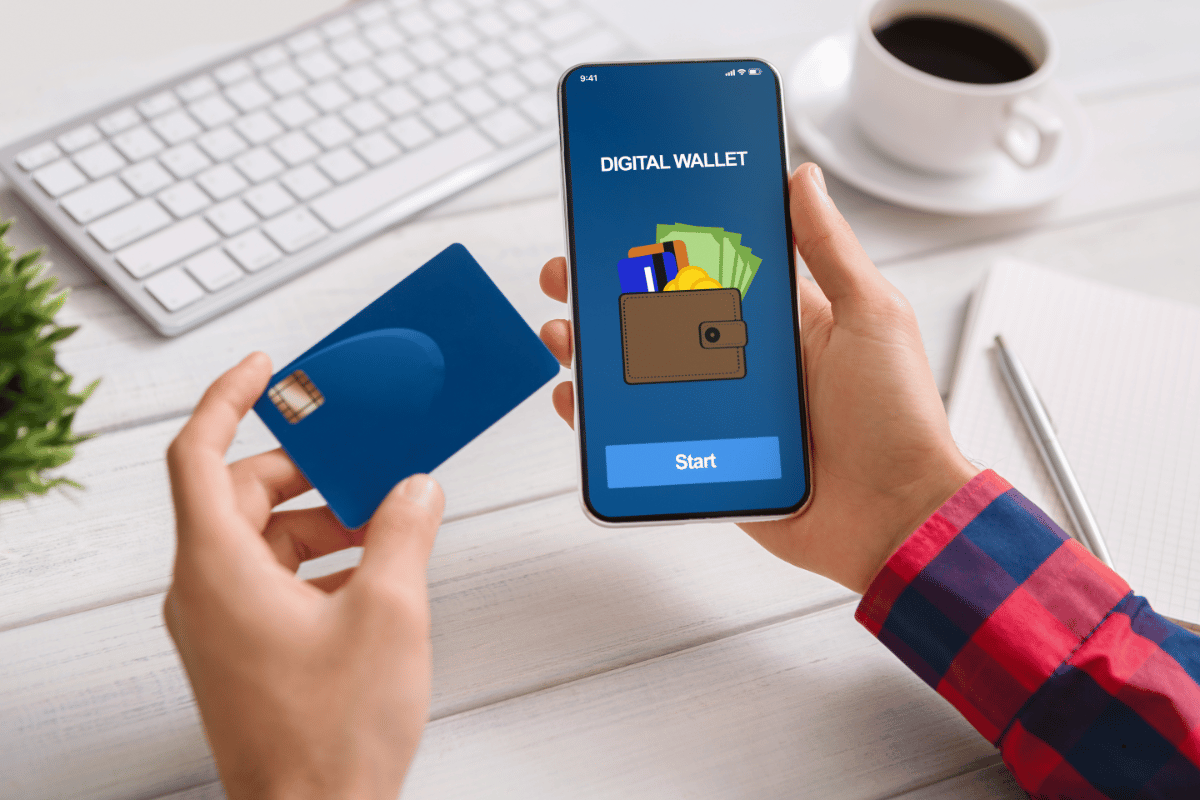What Is a Digital Wallet?
In the digital world, a digital wallet acts as your digital money holder. It stores your payment details securely in the cloud, making transactions swift and painless. With features like wireless connectivity and tech like QR codes and NFC, it’s a seamless way to pay. Major providers like Apple Pay and PayPal offer diverse functions and heightened security through encryption and biometrics. Age restrictions are in place to guarantee safety, while market trends reveal increasing popularity. Discover how digital wallets are transforming financial landscapes.
Key Takeaways
- Digital wallets are secure apps storing payment info for easy transactions.
- They streamline payments wirelessly using QR codes, NFC, and MST.
- Various types exist, offering encryption and biometric security features.
- Age restrictions and guidelines are in place to prevent underage access.
- Providers like Cash App, Apple Pay, and PayPal offer diverse features.
Definition and Functionality of Digital Wallets
Digital wallets serve as convenient financial transaction applications that securely store payment information and passwords in the cloud, accessible from both computers and mobile devices. Advantages of digital wallets include quick and easy transactions, eliminating the need to carry physical cards, and the ability to store multiple payment methods in one place.
Security features such as encryption and tokenization ensure that your financial information is protected from unauthorized access. These wallets provide a seamless and efficient way to make payments online or in-store without compromising your sensitive data.
Operation and Technology of Digital Wallets
Utilizing wireless capabilities, digital wallets streamline payment processes by transmitting payment data wirelessly from your device to the point-of-sale terminal. This technology enables seamless wireless transactions using various methods such as QR codes, NFC, and MST.
Additionally, digital wallets offer the option to conduct transactions using cryptocurrency, providing users with more flexibility in their payment options. By incorporating these wireless technologies and cryptocurrency options, digital wallets enhance convenience and security for users making transactions both in-store and online.
Embracing these advancements in technology allows for quick and efficient payment processing, reducing the reliance on physical wallets and traditional payment methods.
Types and Providers of Digital Wallets
Amid the vast array of financial technology solutions available today, exploring the diverse landscape of digital wallets reveals a multitude of types and providers offering unique features and services.
When it comes to security features, digital wallets employ various methods such as encryption, biometric authentication, and tokenization to guarantee the safety of users’ financial information.
Market trends indicate a growing demand for digital wallets, with providers continuously enhancing their offerings to meet evolving consumer needs. Some prominent examples include Cash App, Apple Pay, Google Wallet, and PayPal, each with its own set of distinguishing features.
Collaboration and partnerships between digital wallet providers and other businesses are on the rise, expanding services and creating more seamless payment experiences for users.
Age Restrictions and Guidelines for Digital Wallet Use
Age verification processes are essential in ensuring secure and regulated access to digital wallet services for users of varying ages. Digital wallets often have age restrictions in place to prevent underage users from accessing certain features. Specific services such as Apple Cash Family and Cash App segregation by age cater to minors, offering limited functionalities for users below 18.
Parental supervision is vital in these cases, with parental authorization required for minors to access and use digital wallet services. By implementing these guidelines and restrictions, digital wallet providers aim to maintain a safe and compliant environment for users of all ages, ensuring that minors are protected and guided in their financial interactions.
Related Concepts and Resources
Exploring the interplay between digital wallets and electronic money in banking systems provides valuable insights into modern financial transactions.
When comparing digital wallets to mobile wallets, understanding their distinct features can enhance your financial management.
Electronic money within banking systems facilitates electronic transactions, offering efficiency and convenience in payments.
Safety measures for storing cryptocurrencies, such as Bitcoin, and utilizing services like BitPay for cryptocurrency debit cards, are important considerations.
Payment gateways play a significant role in securely processing transactions, ensuring the protection of your financial information.
Accessing resources on creating a crypto wallet and improving financial literacy can empower you to make informed decisions regarding your digital transactions.
Stay informed about related concepts to optimize your use of digital wallets.
Conclusion
To sum up, digital wallets are revolutionizing the way we make transactions by securely storing all your payment information in one convenient place.
Did you know that the global digital wallet market is expected to reach $7.6 trillion by 2027?
With cutting-edge technology and a variety of providers available, digital wallets offer a seamless and secure solution for all your payment needs in this digital age.
Embrace the future of finance with a digital wallet today!







